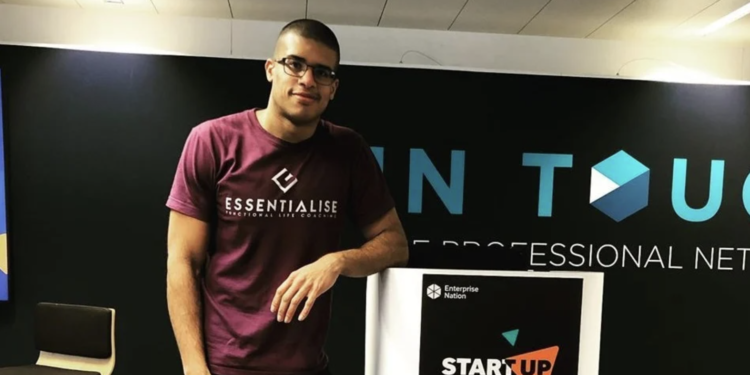Business Unfiltered is a series that looks at business journeys and asks the questions that don’t often get asked when celebrating the success story. We dig deep with entrepreneurs and founders to find the dirty reality of starting a business, the demanding situations they found themselves in, and to see always from all the glorification of the hustle, what actually happened.
Today we speak to British entrepreneur Lee Chambers, who founded video game company PhenomGames in 2008. Let’s explore what a business journey that started in a bedroom of a family home really went through over twelve years of trading.
Hack Post: Welcome Lee, and thank you for agreeing to be part of the Business Unfiltered series.
Lee Chambers: Pleasure to be part of it. I’m a big advocate of removing the gloss of this image of entrepreneurs being “special people”.
HP: Well then, let’s explore before PhenomGames, would you say you were an ‘Natural Born Entrepreneur?’
LC: Well, I grew up in a working-class family, and my parents worked really hard to keep food on the table and a roof over our heads. I was curious and even as young as seven was thinking if I could set up a business, I could make a better future for my family. I had a few little ventures in my younger years, selling Amiga games by magazine mail order and getting my dad to cash the cheques, and selling sweets at school at a markup. Still, I did see my future as getting a good education and a career as my parents advised me to do.
I studied International Business Psychology at University and was again surrounded by business principles. The blueprint for PhenomGames was created in the final year of my degree, but by that time I had been told it would be challenging to execute and that I should go into industry and smooth my rough edges. Those words shifted my mindset towards a career, and that was the direction I was heading in until the financial crash in 2008 kicked me right back to square one.
Knowing many people in business, the natural-born entrepreneur is a myth. We come in many designs, sometimes without testing things when younger. Still, one thing I’ve noticed from successful entrepreneurs is the ability to be both super aggressive and super defensive and know how to find the balance between the two.
T: It sounds like you were set up for a high-flying career; how did you end up with a business instead?
LC: The financial crash wiped me out, leaving me stuck in my parent’s box bedroom back at home. Having tried to get funding and finding it almost impossible, I had to find a way to make enough money to launch a business and do more than surviving a recession just getting by. I worked a job in efficiency management and saved the wages to buy my first batch of stock. And that is how PhenomGames started, with video games wall to wall in that tiny bedroom, and my mattress in between them (the room couldn’t even fit a single bed in).
At this point, I couldn’t even drive, so I’d walk my stock to the post office, sometimes four times a day. It got so busy I suddenly had to recruit help from my younger brothers and parents. I vividly remember, six months in, I made so many sales the whole family created a production line and didn’t finish until 1am in the morning. Memories like that stick with you, not glamourous by the sheer determination to prove I could do it, and the hard work of those closest to you.
However, by this point, I had effectively turned my parent’s house into a distribution depot, the driveway started to crumble, and they started to grumble. With the first year’s profits, I resolved this situation by re-investing and buying my own property. I even paid for my parents drive replacement, so I can say I fixed what I had broken. I am incredibly grateful for the help I received, my girlfriend at the time was working 25 hours to keep things going in the right direction. Never forget the hard work of those around you; no entrepreneur is truly self-made.
T: It’s well documented that you doubled your revenue for the first three years, but what about the things that went wrong?
LC: Well, you tend to forget those in the moment, but looking back, I was very focused on the process, the algorithms and the margins, and less on the strategy. I became complacent because everything was growing. I built strong networks in Europe but neglected my network here in the UK.
I launched VideoGameBox and replicated my previous success, and this was a significant error, as launch went well. Then I was eaten alive as I hadn’t done the market research I needed to and didn’t adapt for what was a different business model.
Most importantly, I never stopped to ask myself was this the right business for me. I was so determined to prove any doubters wrong that I lost sight of the most important thing. Did my company make me happy and align with my values. It took me to become seriously unwell to ask that question, over five years after starting.
In terms of smaller things, I’ve had a shipment disappear, I did my own accounts and made a mess of them in 2013, and at times I’ve been price orientated rather than value-orientated. But the most important thing for me is they have all been learning experiences that serve me well today.
T: We appreciate the brutal honesty! Looking back, having sold PhenomGames, what were you parting thoughts as you left the company you built?
LC: My first thoughts were I’m happy I’ve sold it to a company that will treat my staff and my clients with respect and dignity. My next thoughts were imagining what it could have been if I had known what I do now back when I started it, I’m a very different person 12 years on, it has been with me for a third of my living years.
But my overarching feelings are of gratitude. The business was responsible for building my life from the ground up. It secured my financial wellbeing when my health failed and allowed me to focus on my recovery. It allowed me to spend five years with my children before they started school and gave me the space to work to come off my medication. And it has given me relationships, tears, lessons, and an appreciation for what it means to be an entrepreneur: one who takes risk, and on the foundations of great timing, other peoples hard work and solid processes, you sprinkle a little bit of yourself on top and strap in for the ride.
Lee Chambers is now the Founder of Essentialise, a coaching and wellbeing company. He was recently featured in the Top 50 BAME Entrepreneurs Under 50. You can find out more about him and his journey on his personal website.














